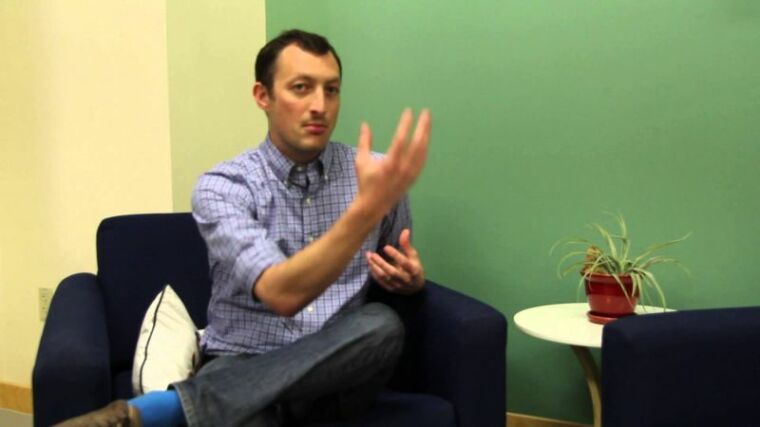There may be twice as many atheists in U.S. than previously reported, says new study

A new study has suggested that many atheists in the U.S. are still in the closet, and there could be twice as many non-believers than what has been reported in previous studies.
Polls conducted by Gallup, Pew, and Barna put the number of atheists in America between three and 10 percent. But a report by two University of Kentucky scholars has suggested that the actual number could be as high as 26 percent because many people are still embarrassed to admit their lack of belief in God.
According to the study conducted by psychologists Will Gervais and Maxine Najle, people are less likely to be truthful when answering a direct "yes or no" question about faith.
"According to our samples, about 1 in 3 atheists in our country don't feel comfortable disclosing their lack of belief," Najle told Vox.
The psychologists polled 2,000 Americans, asking how many of several statements were true about them, such as "I am a vegetarian," "I own a dog," and "I believe in God."
The first group received questionnaires that did not ask about God, while the other group of 1,000 people got questionnaires that asked about their belief in God.
Gervais and Najle compared the responses of the two groups while assuming that the group that was not asked about God would have the same number of non-believers as the group that was asked about God.
Based on the results, the pair concluded that much more than 10 or 11 percent of Americans do not believe in God.
"We can say with a 99 percent probability that it's higher than [11 percent]," said Gervais.
While Gervais admitted that the method is not perfect and yields results with a wide margin of error, he and Najle believe that the results suggest that polling firms such as Gallup and Pew undercount atheists.
Greg Smith, who directs Pew's polling efforts on religion, is not ready to make the same conclusions as Gervais and Najle.
"I would be very reluctant to conclude that phone surveys like ours are underestimating the share the public who are atheists to that kind of magnitude," he said.
Smith noted that Pew has conducted polls on religion both phone and online, but the polling firm did not find much of a difference in the results.
He asserted that people who were unwilling to admit their lack of belief in God to a stranger on the phone will be slightly more likely to input it into a computer.
Smith also pointed out a weird quirk in the researchers' date in which 34 percent agreed to the phrase: "I do not believe that 2 + 2 is less than 13."
Gervais and Najle still believe that their study is valid, but they admitted that more research is needed.
"In time, we'll hopefully be able to refine our methods and find other indirect measurement techniques," said Gervais.
 Christians don't have to affirm transgenderism, but they can’t express that view at work: tribunal
Christians don't have to affirm transgenderism, but they can’t express that view at work: tribunal Archaeology discovery: Medieval Christian prayer beads found on Holy Island
Archaeology discovery: Medieval Christian prayer beads found on Holy Island Presbyterian Church in America votes to leave National Association of Evangelicals
Presbyterian Church in America votes to leave National Association of Evangelicals Over 50 killed in 'vile and satanic' attack at Nigerian church on Pentecost Sunday
Over 50 killed in 'vile and satanic' attack at Nigerian church on Pentecost Sunday Ukrainian Orthodox Church severs ties with Moscow over Patriarch Kirill's support for Putin's war
Ukrainian Orthodox Church severs ties with Moscow over Patriarch Kirill's support for Putin's war Islamic State kills 20 Nigerian Christians as revenge for US airstrike
Islamic State kills 20 Nigerian Christians as revenge for US airstrike Man who served 33 years in prison for murder leads inmates to Christ
Man who served 33 years in prison for murder leads inmates to Christ


 Nigerian student beaten to death, body burned over ‘blasphemous’ WhatsApp message
Nigerian student beaten to death, body burned over ‘blasphemous’ WhatsApp message 'A new low': World reacts after Hong Kong arrests 90-year-old Cardinal Joseph Zen
'A new low': World reacts after Hong Kong arrests 90-year-old Cardinal Joseph Zen Iran sentences Christian man to 10 years in prison for hosting house church worship gathering
Iran sentences Christian man to 10 years in prison for hosting house church worship gathering French Guyana: Pastor shot dead, church set on fire after meeting delegation of Evangelicals
French Guyana: Pastor shot dead, church set on fire after meeting delegation of Evangelicals ‘Talking Jesus’ report finds only 6% of UK adults identify as practicing Christians
‘Talking Jesus’ report finds only 6% of UK adults identify as practicing Christians Mission Eurasia ministry center blown up in Ukraine, hundreds of Bibles destroyed: 'God will provide'
Mission Eurasia ministry center blown up in Ukraine, hundreds of Bibles destroyed: 'God will provide' Church holds service for first time after ISIS desecrated it 8 years ago
Church holds service for first time after ISIS desecrated it 8 years ago Burger King apologizes for 'offensive campaign' using Jesus' words at the Last Supper
Burger King apologizes for 'offensive campaign' using Jesus' words at the Last Supper Uganda: Muslims abduct teacher, burn him inside mosque for praying in Christ’s name
Uganda: Muslims abduct teacher, burn him inside mosque for praying in Christ’s name